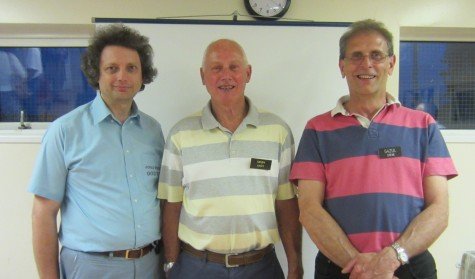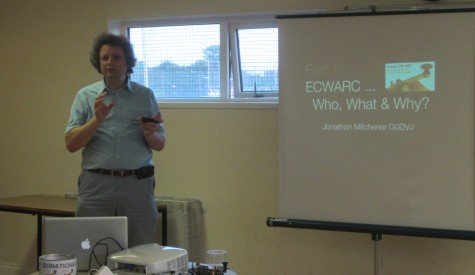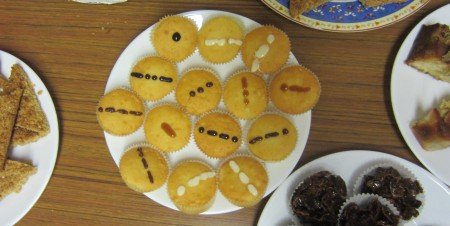On Friday the 5th of July, the three founder members of the Essex CW Club met with members and guests of the Thames Amateur Radio Group on Canvey Island.
Many find CW daunting, or not of interest to them, but to get a feel for how popular CW is today, take a look at the stats for QSOs on the G100RSGB callsign – 10 times more activity on CW than on data, and a third of all contacts on Morse. You’ll often find CW active, whilst voice is quiet too.
Here’s a quick summary of what took place at the Thames ARG July club night:
Essex CW Group
The evening kicked off at 8pm with a presentation on the work of the Essex CW Group – With an impressive 250+ members, the club is going from strength to strength, and they boasts members from all around the world… impressive, given that they only stared in late 2009.

Membership of Essex CW Club is free, and they rely on member donations. On their site, you’ll find information on how to sign up, details of their 80 metre CW nets and details of upcoming events – find them at www.essexcw.org.uk – there’s also an upcoming chance to meet them, as they’ll be in Hockley on the 24th and 25th of July at Waters & Stanton, operating the RSGB’s centenary callsign G100RSGB
Learning CW
The second part of the talk was what the audience had clearly made the trip for… tips on how to get started in CW. A show-of-hands indicated a desire my most of the members and guests to take up the mode – Jonathan pointed out that it’s a skill, and making the grade with the various optional words-per-minute tests is a great achievement.

As well as the “dit” and the “dah”, we were introduced to the “di”. Not easy to explain here on a web page, so after the presentation, we caught up with Jonathan for a quick interview about the rhythm of CW. Take a look at the following 6 minute clip to find out more.
CW Tips
Some key tips came out of Jonathan’s talk, which we captured below:
- Chose the right time to learn, and want to learn.
- Track your progress in a book, so you can see how you’re progressing
- Set yourself targets
- Mix your methods – computer applications, listening, face-to-face
- Don’t predict… “radi” isn’t necessarily followed by an “o”
- Don’t dwell… if you can’t get the word, concentrate on the next one
Other tips included getting good at listening before sending (don’t touch the key), and also, start off with a traditional key, not an automatic paddle.
After the talk, members could chat with the Essex CW Club team, play with the key they brought along, and pick up some free literature about their club.
Feedback from the attendees was very positive, and although the attendance seemed a little lower than previous Thames ARG club nights, those present genuinely wanted to know more about CW, as was demonstrated by the round-the-room interaction.
The club night wrapped up with a raffle, with Bruce 2E0CPQ picking up a starter CW key and a book on the subject. Morse-themed cakes were also in evidence, showing that thought goes into each get-together of the Thames ARG.

A great evening on an aspect of the hobby that whilst initially daunting, opens up a world of possible contacts.

